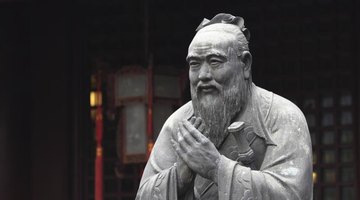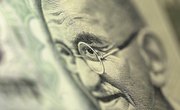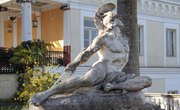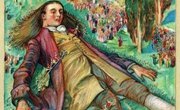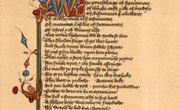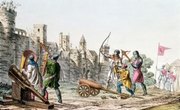Confucius and Lao Tzu were both seekers of spiritual truth and were also contemporaries. Lao Tzu was 20 years Confucius' senior. In his early 30s Confucius paid a visit to Lao Tzu, who was the famous author of the "Tao Te Ching" and a renowned philosopher in China. At the time of the visit, Lao Tzu was the curator of the National Archives in the bustling Chinese capital of Luoyang. The two men shared concerns about their country's crumbling social order, but offered very different solutions. While Confucius was optimistic about the ability of Zhou dynasty kings to offer peace, Lao Tzu questioned their relevance and motives.
Lao Tzu and Taoism
Lao Tzu worked as a librarian in the Chou capital during the Zhou Dynasty. He contributed original work in areas ranging from metaphysics and logic to military science and democratic principles. While some modern scholars regard Lao Tzu as legendary and not a historical figure, he is said to have written a short, but very significant book. The impact of the book on Asian culture has been enormous, just as Confucius impacted Asian society significantly with his "Five Classics." Lao Tzu's title has evolved as Daodejing or the Tao Te Ching. It is a rhymed text which refers to "the One" or the purest form of "qi-energy" nourishing and shared by all beings. The emphasis is on meditation and elimination of selfish desires.
Confucius, the Teacher
Confucius was born in what is today Shantung, to an impoverished but noble family. He excelled at learning early in life and earned a reputation as a scholar. After he traveled for a decade throughout China's states, he aspired to a political court position. However, he never achieved it and spent the rest of his life teaching a group of devoted students and authoring books. He was China's first great political philosopher and Confucianism ultimately became a state religion, combining ancient rites and philosophical ideas. Both Confucianism and Taoism began as philosophies, taking on religious tones later in time.
Similar Concerns
Much like Socrates in the West, Confucius was concerned with the the goal of developing a good citizen. While Lao Tzu's "Tao te Ching" is about inner, spiritual cultivation, scholars do also see it as a guide to achieving peace and sociopolitical order. It was written for a ruling class audience and is an ethical and political work offering specific suggestions for correcting the moral and political turmoil of late Zhou China. The "Book of Changes" was a popular divination tool of the time, which influenced both Confucius and Lao Tzu. In particular, the concept of yin and yang, or two cosmic energies, influenced both.
Sage Advice
Confucius also shares with his Western counterpart Socrates his enjoyment of debating with his students and engaging them verbally. Lao Tzu preferred to write. Confucian scholars sought to be responsible and controlled, while Lao Tzu's work emphasizes "wuwei" or nonaction over too much busyness. However, both of these great thinkers emphasized the importance of kindness, contemplation and the reduction of selfish desires. When their legendary meeting took place, Lao Tzu cautioned Confucius, "Get rid of your arrogance and your ambition." Confucius was so impressed by Lao Tzu, he described him as "a dragon riding the winds and clouds in the sky.
Related Articles
References
Writer Bio
Susie Zappia teaches humanities and research and writing courses online for several colleges. Her research interests include counterculture literature of the 1960 and instructional design for online courses and she enjoys writing about literature, art and instructional design. She holds a Master of Arts in humanities from California State University, Dominguez Hills and a Master of Science in instructional design from Capella University.

